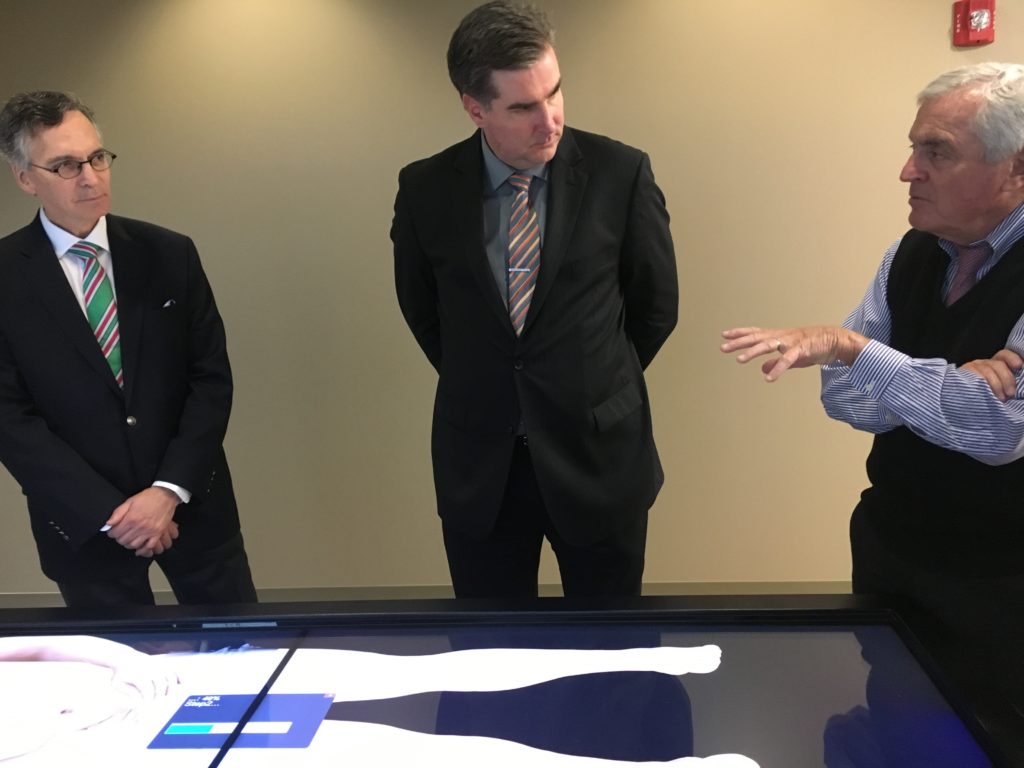Sight + Sound, Spring 2020
by Heather Chronis Danek
Since 1972, the Department of Otolaryngology at the University of Pittsburgh has endeavored to train not only its surgeons, residents, and fellows on best in class techniques but also otolaryngologists from around the world through training seminars at the Eye and Ear Institute.
In 2016, Otolaryngology entered into a new era of surgical training with the development of Pittsburgh CREATES (Collaborative Research, Education, and Technology Enhancement in Surgery), a unique center on the first floor of Eye and Ear Institute that facilitates collaboration between clinicians, researchers, and industry, working at the forefront of innovation across surgical disciplines. Its mission is to improve minimally invasive surgical technologies and practices for the betterment of patient outcomes and to lower the cost of care. While technology advancement is a significant focus for CREATES, innovations in training, credentialing, and best practices are equally important for realizing the potential of new technologies. CREATES, through its partnership with UPMC, has been at the forefront of developing advanced curricula for surgical training using clinical observation, combined with simulation and skills-based exercises that are objectively measured and scored. CREATES is also working with partners in augmented reality, artificial intelligence, and machine learning to optimize the learning process and create realistic, immersive experiences.
Thanks to a grant by the English Bonter Mitchell Foundation of PNC Charitable Trust, a unique opportunity for collaboration between the Parkview-Mirro Center for Research and Innovation in Ft. Wayne, Indiana, and Pittsburgh CREATES becomes a reality in 2020. The Parkview-Mirro Center seeks a common goal with CREATES, which is to establish best practices for the benefit of patients. Led by Carl Snyderman, MD, MBA of the Department of Otolaryngology at the University of Pittsburgh, the proposed collaboration aligns with the mission of the Center and Parkview Health’s desire to recognize and integrate new technologies to improve patient outcomes and healthcare experiences. According to Dr. Snyderman, “We now have the tools to understand the learning process for minimally invasive endoscopic techniques and develop more effective training methods.”
It is first necessary to establish quality and skill-based metrics, to promote safe surgical practices and establish higher standards of care. At the University of Pittsburgh and UPMC, there are ongoing efforts to assess trainee skills through objective metrics, using models, simulation, and video reviews of live surgeries. Through our collaboration, the Mirro Center and CREATES will further develop general, as well as procedure-specific metrics that will be measured through innovative means, using a combination of laboratory-based, computer-based, and remote access tools. Input from surgeons, medical education trainers, and best practices evidence will be used to develop metrics that are meaningful and practical. These will form the basis for training and assessment methods that are standardized and more objective than anything currently available.
